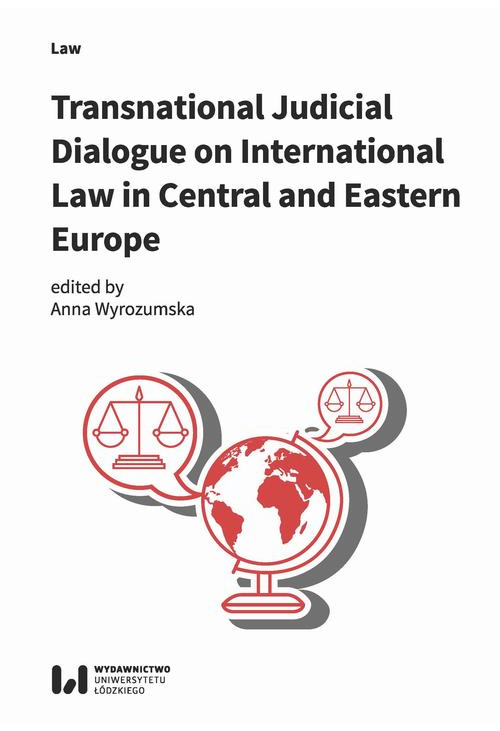
- Za darmo
ebook Transnational Judicial Dialogue on International Law in Central and Eastern Europe
Odkryj fascynujący świat międzynarodowego prawa i dialogu sądowego w sercu Europy Środkowo-Wschodniej dzięki tej wyjątkowej publikacji, która jest wynikiem dogłębnych badań przeprowadzonych pod kierunkiem profesor Anny Wyrozumskiej. Wydanie to, stworzone przez międzynarodowy zespół naukowców z różnych państw regionu, oferuje unikalne spojrzenie na sposób, w jaki sądy w Polsce oraz innych krajach regionu podchodzą do prawa międzynarodowego.
Autorzy dokładnie analizują podejście sądów polskich, czeskich, węgierskich, litewskich, rosyjskich i ukraińskich do kwestii prawa międzynarodowego, uwzględniając regulacje obowiązujące w ich systemach prawnych. Badanie skupia się na dialogu sądowym, który rozwija się w tym kontekście.
Pojęcie dialogu sądowego jest szeroko definiowane jako praktyka odwoływania się do interpretacji i uzasadnień prawnych dokonywanych przez sędziów spoza danego systemu prawnego. Autorzy starają się zrozumieć, w jakich okolicznościach i dla jakich celów sądy regionu CEE nawiązują dialog z sądami międzynarodowymi lub zagranicznymi krajowymi w przypadku pytań dotyczących prawa międzynarodowego.
Celem tego badania jest ocena potencjalnego wpływu dialogu sądowego na rozwój prawa międzynarodowego i umocnienie zasady państwa prawa. Ta publikacja w istotny sposób przyczynia się do głównego dyskursu akademickiego na temat interpretacji i stosowania prawa międzynarodowego, kładąc nacisk na unikalne doświadczenia państw Europy Środkowo-Wschodniej.
Jeśli chcesz pogłębić swoją wiedzę o międzynarodowym prawie i dialogu sądowym, ten ebook jest idealnym wyborem dla Ciebie. Dostępny w formacie PDF, oferuje łatwy dostęp do cennych informacji i analiz. Odwiedź nasz sklep z ebookami i pobierz tę fascynującą publikację już teraz!
Spis treści ebooka Transnational Judicial Dialogue on International Law in Central and Eastern Europe
Introduction 11I. The Central and Eastern European Judiciary and Transnational Judicial Dialogue on International Law (Anna Wyrozumska) 15
1. Judicial Dialogue as a Means of Application of International Law 15
2. Poland 18
2.1. The Legal Setting for Judicial Dialogue 18
2.2. Deference to International and Foreign Courts Decisions 23
2.2.1. References Prompted by Applicants or Made Proprio Motu 23
2.2.2. Identification of Customary International Law – Skrzypek, Natoniewski and Nigerian Embassy 26
3. The Czech Republic 29
3.1. The Legal Setting for Judicial Dialogue 29
3.2. Deference to International and Foreign Courts Decisions 34
3.2.1. General Remarks 34
3.2.2. The Foreigner Requesting Asylum in a Transit Area Case 36
3.2.3. A Dissenting Dialogue 37
3.2.4. The Slovak Pensions Rights Case – Horizontal and Vertical Dialogue 40
4. Hungary 43
4.1. Dualistic Approach to International Law 43
4.2. ‘International Legal Comparisons’ of Hungarian Courts 48
4.2.1. The Abortion and the Status of a Foetus Case 48
4.2.2. The Election Rights Case – the Limits of International Comparisons 50
4.2.3. The Status of the Decisions of Foreign and International Courts 51
5. Lithuania 53
5.1. The Legal Setting for Judicial Dialogue 53
5.2. Deference to International and Foreign Courts Decisions 57
5.2.1. The Judges Salaries Case 58
5.2.2. The Concept of Family in State Policy Case 58
5.2.3. The Paksas Case – the Status of the Decisions of Foreign and International Courts and the Dissenting Dialogue 60
6. The Russian Federation 62
6.1. The Legal Setting for Judicial Dialogue 62
6.2. Strong Dissenting Dialogue – the Answer to the ECtHR Markin and Anchugov Cases 70
6.3. The Vienna Convention on the Law of Treaties and Politics – the Crimea Case 76
7. Ukraine 79
7.1. The Legal Setting for Judicial Dialogue 79
7.2. The Birth of Judicial Dialogue in Ukraine 82
8. Conclusions 88
Bibliography 90
II. The Dialogue of CEE Constitutional Courts in the Era of Constitutional Pluralism (Izabela Skomerska-Muchowska) 103
1. Introduction 103
2. The Concept of Constitutional Pluralism 105
2.1. From Dualism to Pluralism – a Conceptual Framework 105
2.2. Institutional Dimension of the Constitutional Pluralism – the Role of Judicial Dialogue 109
3. Judicial Dialogue in Practice of the CEE Constitutional Courts 112
3.1. The Actors of Judicial Dialogue 112
3.1.1. The Dialogue with the European Court of Human Rights 112
3.1.2. The Dialogue with the CJEU 121
3.1.3. The Dialogue with Other International Courts 134
3.1.4. The Dialogue with Foreign National Courts 139
3.2. The Main Fields of Judicial Dialogue 142
3.2.1. The Judicial Dialogue on Human Rights Protection 142
3.2.1.1. Searching for a Common Standard of Protection – Consistent Interpretation 142
3.2.1.2. Shaping the Standard of Protection Through Judicial Dialogue – the Pilot Judgement Procedure and Beyond 149
3.2.2. The Dialogue on EU Law 158
3.3. The Limits of Judicial Dialogue – from Sovereignty to Constitutional Identity 165
4. Concluding Remarks 179
Bibliography 182
III. Administrative Courts and Judicial Comparativism in Central and Eastern Europe (Joanna Krzemińska-Vamvaka) 197
1. Introduction 197
2. Cases with a Foreign Element 198
3. The EU Administrative Law and Judicial Comparativism 199
4. The Cooperation of Administrative Courts and Judges in the EU 201
4.1. Sharing of Comparative Information 204
4.2. Internet-Enabled Continuous Communication 206
4.3. Exchange Programs for Practicing Judges 207
4.4. The Structured Cooperation as a Backbone of Judicial Comparativism 207
4.5. The CEE Cooperation 209
5. The Overview of the References to Foreign Law by the Polish Administrative Courts 211
5.1. Types of References 214
5.2. Reasons for Resorting to Foreign Law 214
5.3. Sources of Knowledge on Foreign Law 216
5.4. Specificity 216
5.5. Visibility and Intensity 217
5.6. Contributors to the Judicial Comparativism 218
6. Administrative Courts Commenting on their Comparative Activity 218
7. Comparative Overview of CEE Judicial Dialogues in Administrative Law 218
8. Conclusions 222
Bibliography 225
IV. The Dialogue between Selected CEE Courts and the ECtHR (Marcin Górski) 233
1. Introduction 233
2. The Normative Framework 238
2.1. The Polish Example of the Influence of the ECtHR Case Law on the Domestic Legal System 238
2.2. The Duty of Observance of the ECtHR Case Law 241
2.3. Reopening of Proceedings Following an Adverse Ruling of the ECtHR 249
3. The Forms of Judicial Dialogue of the CEE States’ Courts with the ECtHR Classified vis-à-vis the Criterion of Appropriateness 254
3.1. The Proper Dialogue: Implementing the ECHR Standard by Domestic Courts or Consciously Questioning it after Thorough Analysis 255
3.1.1. Poland 255
3.1.2. Other CEE States 259
3.2. The Fake Dialogue: Decorating the Reasoning Instead of Reading the Case Law and Cases of Abusive Interpretation 265
3.3. The Failed (Non-attempted) Dialogue: Cases of Non-implementation of the ECHR Standard 270
3.3.1. Poland 270
3.3.2. Other CEE States 276
3.4. Non-classifiable Decisions: Problems with Identification of the Convention’s Status or the Role of National Organs in the Convention System 281
4. Concluding Remarks 285
Bibliography 288
V. The Preliminary Reference Procedure as an Instrument of Judicial Dialogue in the EU – the CEE Perspective (Anna Czaplińska) 297
1. Introduction 297
2. The Dialogue-generating Features of the Preliminary Reference Procedure 300
3. The Preliminary Reference Practice of the Courts in the Selected CEE Member States and Its Impact on the Development of EU Law 306
3.1. The Czech Republic 306
3.2. Hungary 311
3.3. Lithuania 317
3.4. Poland 322
4. Conclusion 328
Bibliography 330
VI. The Polish Ordinary Courts in Dialogue on International Law (Magdalena Matusiak-Frącczak) 333
1. Introductory Remarks 333
2. Examples of a Proper Dialogue 335
2.1. Human Rights Protection 335
2.2. Customary International Law 340
2.3. Application of EU Law 346
2.4. Other Areas of Judicial Dialogue 349
3. Examples of a Decorative Dialogue 351
4. Examples of a Failed Dialogue 353
4.1. Human Rights 354
4.2. International Customary Law 354
5. Conclusions 355
Bibliography 359
VII. International Refugee Law and Judicial Dialogue from the Polish Perspective (Michał Kowalski) 365
1. The Specificity of International Refugee Law and Judicial Dialogue 365
2. The Europeanization of International Refugee Law and Judicial Dialogue 369
3. International Refugee Law and Judicial Dialogue, Conversation or Interaction? 373
4. The Judicial Dialogue on Refugee Law in the Polish Context 375
4.1. Introductory Remarks 375
4.2. The General Characteristics of the Polish Contribution to the Judicial Dialogue on Refugee Law 376
4.3. Defining the Concept of a ‘Social Group’ 382
4.4. Applying the Internal Protection (Flight) Alternative Principle (‘the IPA principle’) 385
4.5. Granting Subsidiary Protection and the Denial of Access to Adequate Medical Treatment 390
5. Conclusion 393
Bibliography 395
VIII. Lithuanian Courts in Dialogue on International Law (Elżbieta Kuzborska) 399
1. Introduction 399
2. The Legal Basis for Judicial Dialogue in the Domestic Law 401
3. General Considerations Concerning Judicial Dialogue in Lithuania 403
4. Domestic Measures for International Law Infringements 408
5. The Application of EU Law 413
6. Implementing Strasbourg’s Standards – Review of the Examples of Judicial Dialogue 419
6.1. The Right to a Fair Trial and other Procedural Guarantees 421
6.2. The Protection of Private and Family Life 425
6.3. Freedom of Expression 425
6.4. Rights of a Child 426
6.5. The Right to Liberty and Security of a Person 427
6.6. Freedom of Association 428
6.7. Prohibition of Discrimination 429
7. The Challenges for the Judicial Dialogue in Lithuania 431
8. Conclusions 433
Bibliography 435
IX. Ukrainian Courts in Dialogue on International Law (Ivanna Kolisnyk) 441
1. Introduction 441
2. The Legal Basis for Application of International Law in a Domestic Legal System 442
2.1. The Status of International Law within the Ukrainian Constitutional Framework 442
2.2. Legislative Provisions Regarding the Implementation of International Law
within the National Legal System 446
2.2.1. The Law on International Treaties of Ukraine 446
2.2.2. The procedural laws of Ukraine 447
2.2.2.1. The Civil Procedural Code of Ukraine 447
2.2.2.2. The Criminal Procedural Code of Ukraine 449
2.2.2.3. The Commercial Procedural Code of Ukraine 449
2.2.2.4. The Code of Administrative Proceedings of Ukraine 450
2.2.3. The Law of Ukraine on Execution of Decisions and Application of Practice of the European Court of Human Rights 450
3. The Practice of Application of International Law in the Ukrainian Legal Order 452
3.1. The Application of the ECtHR Case Law in Ukraine 452
3.2. References to the Vienna Convention on Diplomatic Relations of 1961 and the Vienna Convention on Consular Relations of 1963 457
3.3. The importance of ‘Namibia exception’ in Judgments Regarding the Temporarily Occupied Territories of Ukraine (ICJ Advisory Opinion on Namibia of 21 June 1971) 458
4. Conclusions 462
Bibliography 463
X. Problems with Application of International Law in Ukraine: Theoretical and Practical Issues (Taras Tsymbrivskyy) 467
1. The Lack of Proper Definition of the Status of International Law in the Law of Ukraine 467
2. The Application of International Law by the Constitutional Court 474
3. Conclusions 477
Bibliography 478
XI. Who is to Give Effects to the ECtHR Decisions? The Vajnai Saga (Erzsébet Csatlós) 481
1. Introduction 481
2. The Background of the Vajnai Saga 483
3. A Brief Introduction to the Status of International Legal Sources in the Hungarian Legal System 486
4. The History Repeats Itself: the Administrative Authority versus Application of International Law 489
4.1. The Facts 489
4.2. The Police and the ECtHR judgment 491
4.3. Doctrinal Background: the Non-harmonisation of Domestic Law with International Law as a Key Issue 491
4.4. Which Standard to Apply in the Lack of State’s Implementation of the ECtHR Judgment? 492
4.5. Which Organ is Obliged to Take International Obligations into Consideration? 494
5. Problems Revealed by the Vajnai Saga 497
Bibliography 500
Szczegóły ebooka Transnational Judicial Dialogue on International Law in Central and Eastern Europe
- Wydawca:
- Wydawnictwo Uniwersytetu Łódzkiego
- Rok wydania:
- 2018
- Typ publikacji:
- Ebook
- Język:
- angielski
- Format:
- Redakcja:
- Anna Wyrozumska
- Liczba stron:
- 504
- Miejsce wydania:
- Łódź
- ISBN dla wersji papierowej:
- 9788380887077
Recenzje ebooka Transnational Judicial Dialogue on International Law in Central and Eastern Europe
-
Reviews (0)

Na jakich urządzeniach mogę czytać ebooki?
- Za darmo


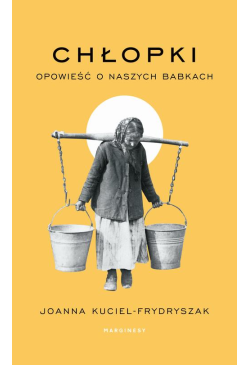
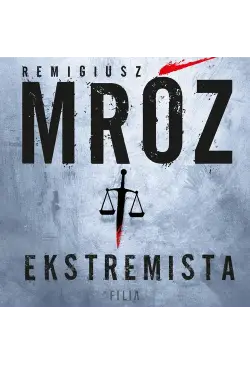
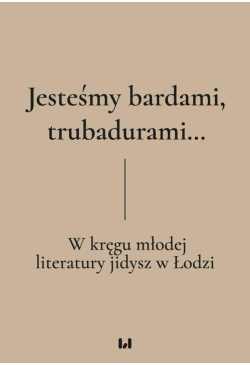

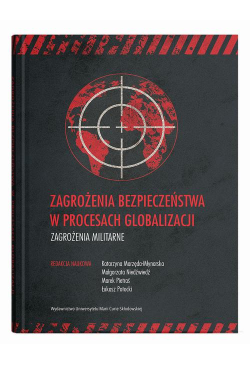
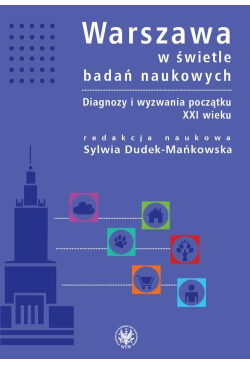
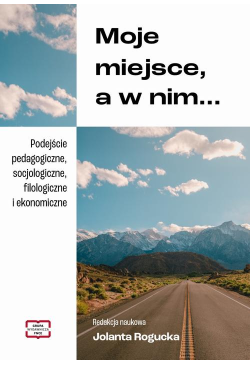
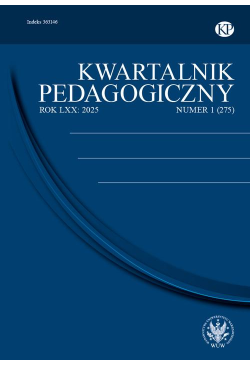
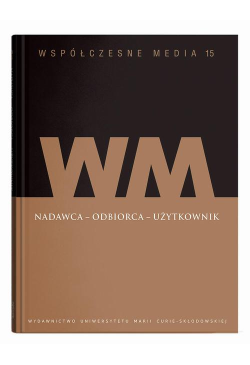
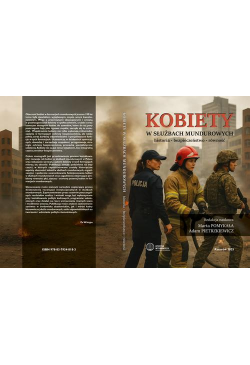
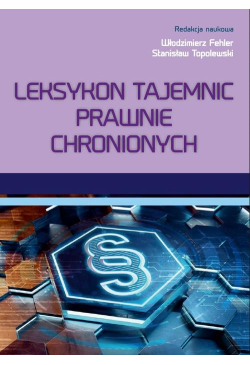
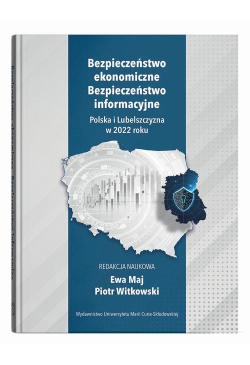
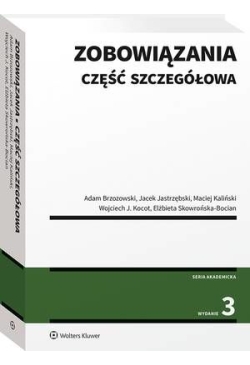
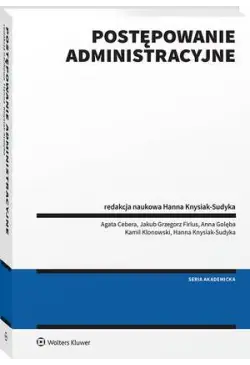
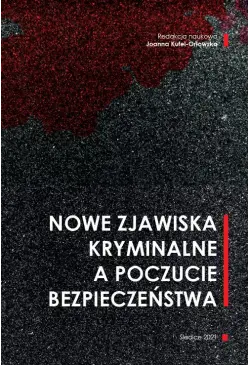
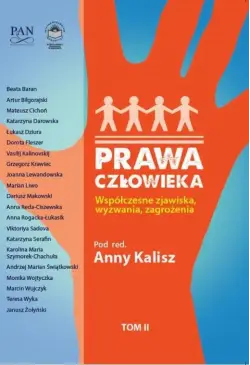
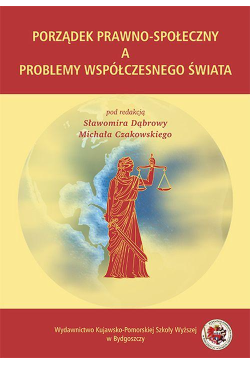
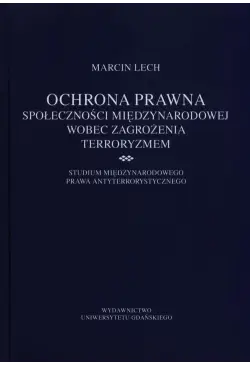
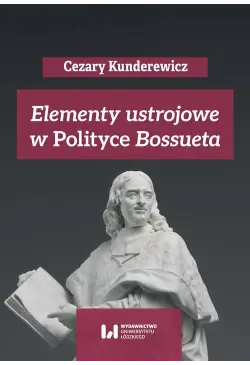
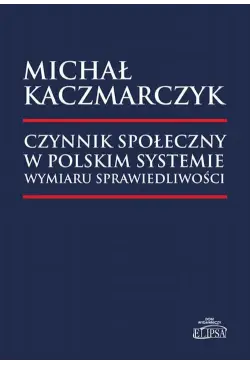
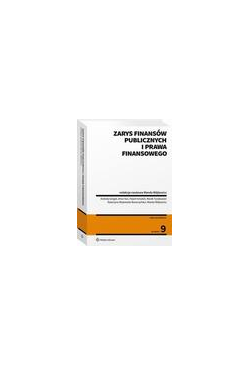


@CUSTOMER_NAME@
@COMMENT_TITLE@
@COMMENT_COMMENT@